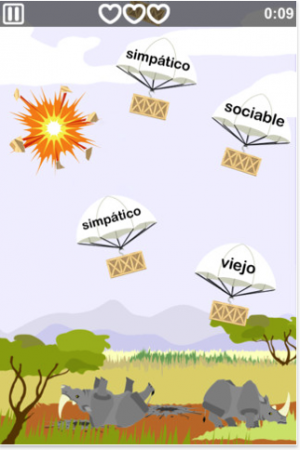 By Polly Stryker
By Polly Stryker
App stores are chock-a-block with apps for language learning. Most of them boast colorful flashcards and cute characters for kids, and others are translators that help travelers with phrases, vocabulary, and pronunciation. The big names are in the mix: Rosetta Stone has apps for both Android and iPhones/iPads, but they're mobile companions to the expensive software packets that contain the main course. Berlitz sells apps to help you brush up on your vocabulary and phrases before you travel.
But a few new language learning apps are moving in on the "gamification" trend in education, making a game out of learning phrases and words. For young students accustomed to playing games during their off-hours from school, or for adults who have a few minutes to kill on the bus, these game apps are meant to help with casual, conversational language learning in languages like Spanish, Italian, French, German, Mandarin, and Portuguese.
One of the biggest players in the language-learning game app realm is MindSnacks, and as Mindy Eve Myers, Director of Education explains it, the point of the app is not necessarily to teach the language to the point of fluency, but to keep players engaged with something more productive than killing pigs.
"The reason that we wanted the games to look they way they did and to be able to be played in short bursts of time is that we wanted them to fit into those awkward moments of the day where you've got a couple of minutes to kill," Myers said. "So, instead of playing Angry Birds, you can practice your Spanish vocabulary."
Here's how it works: You have to match the English word with the Spanish word, for example, "nine" and "nueve," before the fish tank empties. The water drains faster and faster as numbers are thrown at you.

